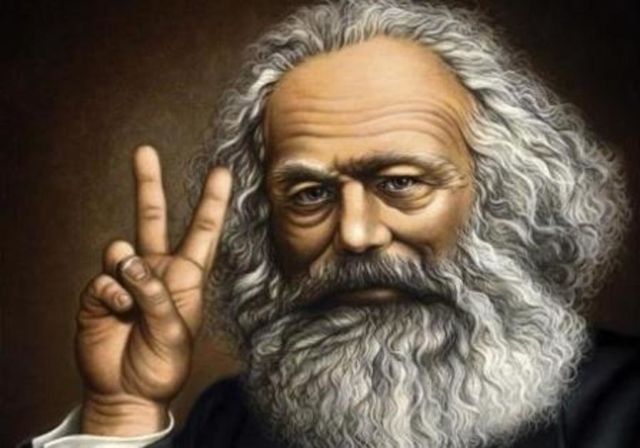KARL MARX: THE BIRTH OF A REVOLUTION
 Philosopher, economist, journalist and thinker – Karl Marx had the perfect combination of skill sets that would eventually give him the title of a ‘Revolutionary socialist’. Born into a middle class German family on May 5 1818, this was clear from his young age that Karl had something different about him.
Philosopher, economist, journalist and thinker – Karl Marx had the perfect combination of skill sets that would eventually give him the title of a ‘Revolutionary socialist’. Born into a middle class German family on May 5 1818, this was clear from his young age that Karl had something different about him.
The clarity of thought, the skill for observation and his general perception of things started moulding into something really interesting when he studied Philosophy at the Universities of Bonn and Berlin. Shortly thereafter, he joined a movement known as the Young Hegelians, challenging the cultural and political establishments of the day.
The idea behind his writings was to create a system for social and economical development that would depend ONLY on the ‘Material conditions’ of the society (its Productive capacity) And in which, the causes for the changes in human society would be the means by which they produce the necessities of life.
Meaning?
Put in simple words, he suggested that the human history is like a river.
It’s flowing and changing constantly.
Its water is evaporated and drawn up, only to return as rain.
Now what if one day, the river’s banks are weakened and it rains heavy?
What would happen is that the river would flood, making a new course for itself.
And this is what needed to be done to the structure of the society we live in.
These writings were merely the beginning of his Journalism and Philosophy career, the radical nature of which would eventually get him expelled from France, Germany and Belgium.
But that didn’t stop him.
Ideas are indestructible, after all.
His theories about the society, economy and politics – the collective understanding of what is called Marxism, suggest that our society goes through a ‘class struggle’ between the ownership class and the working class. And every now and then, the working class – running the things – would try to represent their own interests as the ‘common interests of all’.
And so, Capitalism needs to be kept in check.
Rooting for the working class of the society, Marxism suggests that production should be based completely upon ‘use value’, and economic distribution on ‘contribution’.
Rooting for the working class of the society, Marxism suggests that production should be based completely upon ‘use value’, and economic distribution on ‘contribution’.
He had to move to London after he published “The Communist Manifesto” in 1848, (which was a time for many uprising revolutions in Europe) introducing the above concepts. He spent the rest of his live in London where he published the first volume of “Capital” (also known as Das Kapital), in which he laid out his vision on capitalism and its self-destructive tendencies.
He was later recognized as one of the MOST influential philosophers and revolutionaries of all time.
But as it turned out, the man behind these immortal ideas was but one of us. He developed a severe case of Bronchitis and Pleurisy, and eventually passed away on March 14, 1883.
His closest friends say that they had left him alone for barely two minutes, only to return to find him in his thinking posture ‘in his armchair, but peacefully gone to sleep’.
131 years, and Marxism still continues to change the world – making a difference in the name of the ‘working class hero’ that gave up almost everything for social equality.
No comments:
Post a Comment